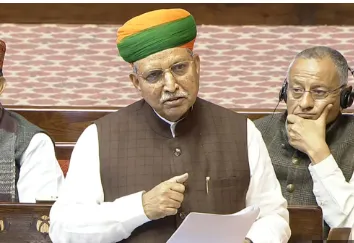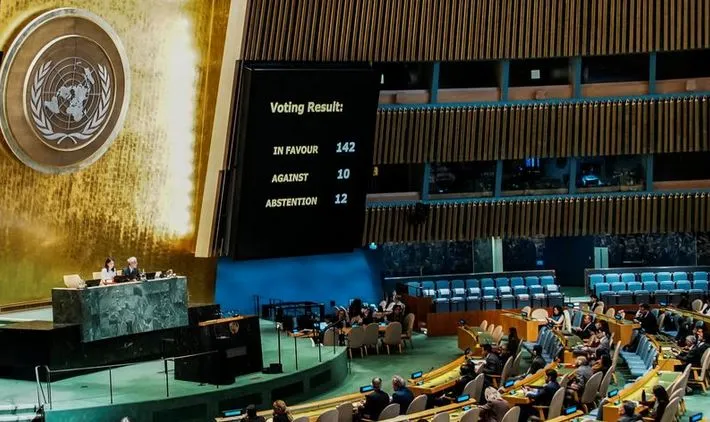

In a significant recalibration of its foreign policy, India has voted in favor of a United Nations General Assembly resolution that strongly endorses a two-state solution and calls for a peaceful settlement of the Israeli-Palestinian conflict. The vote marks a decisive shift from New Delhi's recent pattern of abstaining on similar resolutions, aligning India with an overwhelming global majority and signaling a more assertive stance on the issue. The resolution, which was fiercely opposed by the United States and Israel, passed with 142 nations in favor.
The resolution endorses the 'New York Declaration,' a seven-page document that calls for "collective action to end the war in Gaza" and achieve a "just, peaceful and lasting settlement." While the text unequivocally condemns the October 7 Hamas attack on Israel, it is also deeply critical of Israel's retaliatory military campaign. It cites the widespread civilian casualties, the destruction of infrastructure, and the conditions of "siege and starvation" that have created a humanitarian catastrophe in Gaza.
The declaration goes further, urging the Israeli leadership to make a clear public commitment to a sovereign Palestinian state. It calls on Israel to "immediately halt all settlement, land grabs and annexation activities in the Occupied Palestinian Territory, including East Jerusalem," and to put a stop to settler violence. The document powerfully reaffirms the right of the Palestinian people to self-determination and asserts that "the war in Gaza must end now," stating that Gaza is an "integral part of a Palestinian State."
India's 'yes' vote is particularly noteworthy as it breaks a three-year pattern. On at least four previous occasions, New Delhi had abstained from UN resolutions that called for a ceasefire in Gaza, a position that had drawn criticism for avoiding a direct call to halt hostilities. By backing this resolution, alongside all the Gulf Arab nations, India has now clearly and publicly aligned itself with the international consensus that views the two-state solution as the only viable path to lasting peace. The move is being interpreted as a significant diplomatic realignment, reflecting a more confident and independent foreign policy that is less deferential to the positions of its strategic partners, particularly the United States.
The resolution was met with vociferous opposition from both Israel and the United States, who were among the ten nations to vote against it. Israel’s foreign ministry spokesperson denounced the General Assembly as a "political circus detached from reality," highlighting that the declaration failed to label Hamas a terrorist organization. The US Mission to the UN was equally dismissive, with a diplomat labeling the resolution a "gift to Hamas" and an act of "political grandstanding." This stark division underscores the deep international fault lines on the issue and highlights the growing isolation of the US and Israeli position within the global community, even as the death toll in Gaza surpasses 64,000.